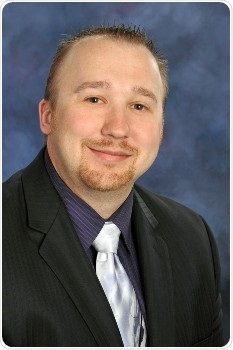Aug 7 2015
St. Luke’s University Health Network’s functional neurosurgeon Steven Falowski, MD, has partnered with Medtronic medical device company to promote faster and better product development within the field of neuromodulation for patients with pain and disability related to nerve disorders. Many of the patients’ pain and disability is a result of brain tumors, Parkinson’s disease and head and spine injuries.
 In a first of its kind undertaking, live video feed taken while Dr. Falowski performs neurosurgical procedures to implant spinal cord stimulators, deep brain stimulators and pain pumps is sent through a specialty camera system to Minneapolis, MN where Medtronic engineers witness how their products are being used in live time. During the surgical procedures, Medtronic engineers have the ability to ask questions to best make modifications to enhance and improve their devices for the future. The first surgery using this technology and Medtronic engineer-St. Luke’s surgeon interaction occurred today, Thursday, August 6.
In a first of its kind undertaking, live video feed taken while Dr. Falowski performs neurosurgical procedures to implant spinal cord stimulators, deep brain stimulators and pain pumps is sent through a specialty camera system to Minneapolis, MN where Medtronic engineers witness how their products are being used in live time. During the surgical procedures, Medtronic engineers have the ability to ask questions to best make modifications to enhance and improve their devices for the future. The first surgery using this technology and Medtronic engineer-St. Luke’s surgeon interaction occurred today, Thursday, August 6.
Dr. Falowski is the Lehigh Valley region’s only fellowship-trained, functional neurosurgeon, and Medtronic is the world’s largest medical device company. The relationship between the company and Dr. Falowski has been long-standing and has resulted in a number of technological strides that ultimately benefit patients.
“We’ve been working to develop this capability for several years,” said Dr. Falowski. “The live feed, which includes a specialty camera attached to my surgical headlamp, allows Medtronic engineers to see a surgery from my visual perspective and allows the engineers to see exactly how I am using their equipment.”
The partnership is extremely valuable to Medtronic, due in part to Dr. Falowski’s implantation history and success rates. A national leader in neurostimulation implantation, Falowski implants 150 neurostimulators annually and implanted nearly 50 deep brain stimulators last year. Because of the large number of cases performed of a single procedure, St. Luke’s Neurosurgical Associates’ success rates are higher and complications are lower compared to other, non-specialized facilities.
Participating patients will remain completely anonymous. The camera system is engaged when the patient is completely draped and only the operative field is recorded through the technology.
According to Dr. Falowski, “The technology at St. Luke’s is really on the leading edge, especially for neuromodulation. As a result of this partnership, St. Luke’s patients will have access to new technology before any other health care center in the country.” After FDA approval, new medical products are typically not available for up to six months but Dr. Falowski is one of a handful of physicians in the country with pre-market release access.
For now the Medtronic products being utilized as part of this program are those related to neuromodulation including spinal cord stimulators, deep brain stimulators and pain pumps. But with the technology investment already made Falowski suggests other medical device companies may look to forge similar relationships not only with the neurosurgery department but other surgical as well. Said Falowski, “The possibilities are truly endless.”